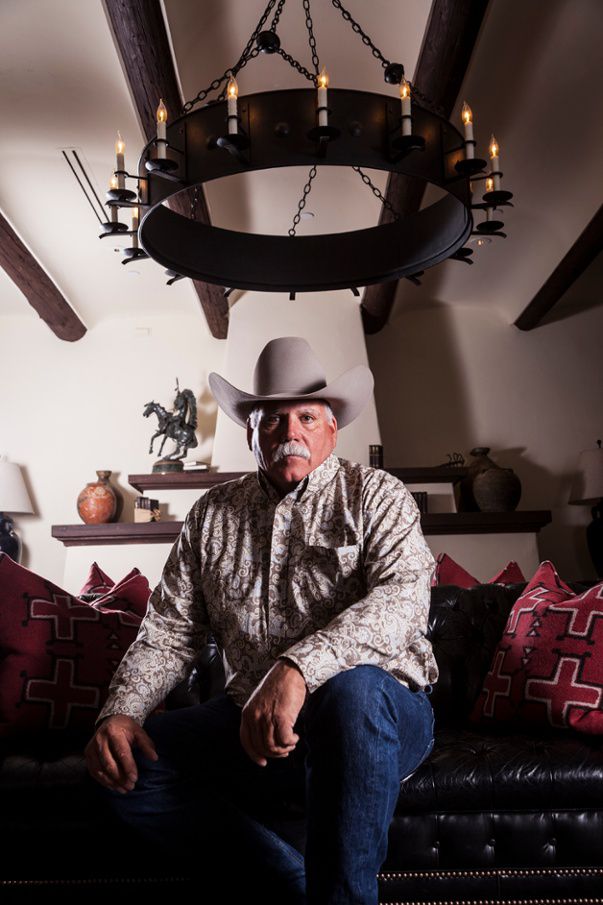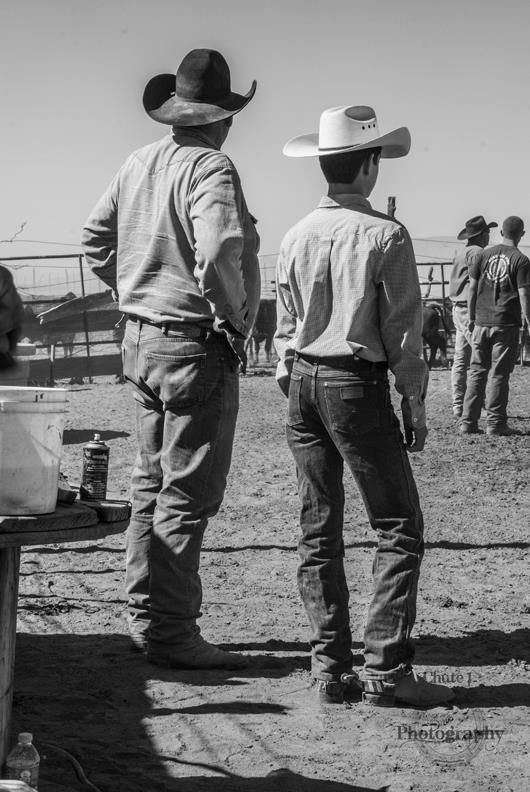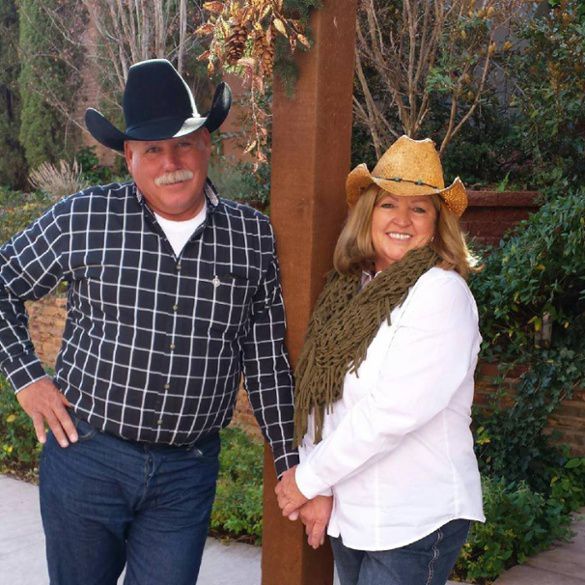Meet Arizona Agriculture's Emmett Sturgill
Published
3/23/2015
By Julie Murphree, Arizona Farm Bureau: This northern Arizona rancher discovered that his dream as a child was to have his own cattle. But to do it, he had to work as many as three jobs at a time. Today, he’s not only living his dream but focused on growing the business and doing what needs to be done to be efficient and ensure the business for the next generation.
An interview with Emmett Sturgill, Mohave County, Arizona
Part of an ongoing series about Arizona agriculture’s farming and ranching families.
Tell us about your ranch business. My father was a cowboy and my mother was a nurse. I grew up in Northern Arizona, and my father also worked in Montana, but finally ended up back in Arizona, where I have remained. My father worked on various ranches while I was growing up, and much of the time I accompanied him. I bought my first bunch of cattle, 5 head, in 1974 and have been involved in the cattle business in one form or another since that time. In 1993 I leased the Valentine Ranch and have since sold my interest to my son Justin. In 1993, I leased the Canyon Springs Ranch, north of Kingman, from Darrel Cale. In 2000, Jack and Stacie Fuller and my wife and I purchased the ranch. We currently run a Corriente cow/calf operation on that ranch.

Emmitt Sturgill fulfilled his lifelong dream to be a rancher.
In 2008 I leased the Cedar Canyon Ranch, a 600-head permit cow/calf operation North of Kingman and in 2009 I moved to the headquarters of the ranch, which is where I now reside with my fiancé, Lori Warring where we run a Red and Black Angus cow/calf operation. In 2015, we purchased the Diamond Bar ranch, a 373 head permit also North of Kingman. We are currently in the process of purchasing Cedar Canyon Ranch. Lori and I operate our ranches under an LLC (Rafter S Cattle Co.). Lori also operates a grass-fed beef business from our ranch.
What changes have you seen in your lifetime as it relates to farming and/or ranching? An increasing population adds pressure on
Why did you choose to go into agriculture? My father was a cowboy. We moved from ranch to ranch, and I knew at an early age I wanted the same lifestyle, so it was my life’s passion to become a rancher. It’s in our
Will anyone in your family – the younger generation - pursue farming and/or ranching? I hope so, I have several grandchildren and

Here with one of his grandsons, Hunter Sturgill, Emmett does hope that someone in his family will continue the ranching.
Would you ever consider growing an emerging crop or changing your farm or ranch model? We are
What are your community activities? Why are you involved? We are involved in most all
What is one fact/experience/achievement no one knows about you? I worked at least two jobs, sometimes three, my whole life to get where I am. My 35-year career in law enforcement and working on many ranches around, including my own ranch is something people might not know either.
What do you think you do really well? Explain. I work well with government officials to accomplish objectives on behalf of agriculture and ranchers. My entire life was devoted to negotiating and I’ve brought that into the ranching business, which has worked to help bridge gaps between government entities and ranchers.
Why are you a farm bureau member? I believe the Farm Bureau is a good advocate for our business, I appreciate the benefits they provide to ranchers and farmers, as well as the work they do on behalf of all of us. I also have Farm Bureau insurance, so it goes hand-in-hand.

Emmett and Fiance, Lori Warring, run a Red and
How will the next generation of farmers have to operate? The next generation will be under even more regulations, more restrictions, and higher costs. But, one advantage will be a higher level of technology. Hopefully, the
Providing the price of beef remains high, which we know what goes up must come down, so there will be tough times as we’ve all seen in the past, we hope the good times will outweigh the bad times. Less than 2% of the population grows or raises the food for the remaining 98%, if we don’t continue to help and support ranchers and farmers we will find ourselves outsourcing our food from other countries, something I’m not interested in having
What business-oriented advice would you give young people, especially if they want to be in agriculture? Be true to yourself, work hard every day, have lofty goals and don’t lose sight of them. It may take time, nobody promised it would be easy, if it was, everyone would do it, so stick to it and you will achieve your dreams, I know, I did!